Pramirol
✅ Alleviates Parkinson’s symptoms
✅ Improves motor function
✅ Reduces tremors
✅ Enhances mobility
✅ Restores dopamine levels
Pramirol contains Pramipexole.
Product Overview
Pramirol is a medication containing the active ingredient Pramipexole. It belongs to a class of drugs known as dopamine agonists, which are primarily used in the treatment of Parkinson’s disease and restless legs syndrome (RLS). Pramipexole works by stimulating dopamine receptors in the brain, thereby helping to improve motor function and reduce the symptoms associated with Parkinson’s disease. Additionally, it helps alleviate the uncomfortable sensations in the legs characteristic of RLS. Pramirol is available in oral tablet form and is typically prescribed by healthcare professionals to manage these neurological conditions.
Uses
Pramirol is used to treat Parkinson’s disease, a progressive neurological disorder characterized by tremors, rigidity, bradykinesia, and postural instability. It is also indicated for the management of restless legs syndrome (RLS), a condition characterized by an uncontrollable urge to move the legs, often accompanied by uncomfortable sensations such as itching, tingling, or burning. Pramirol helps alleviate these symptoms and improve the quality of life for individuals affected by these conditions.
How to Use
Pramirol should be taken orally as directed by a healthcare provider. It is usually administered once daily, with or without food. The dosage may vary depending on the individual’s medical condition, response to treatment, and other medications they may be taking. Patients should swallow the tablets whole with a glass of water and avoid crushing or chewing them. It is essential to follow the prescribed dosage and dosing schedule to achieve optimal therapeutic effects.
How it Works
Pramirol works by activating dopamine receptors in the brain, particularly dopamine D2 and D3 receptors. As a dopamine agonist, it mimics the effects of dopamine, a neurotransmitter involved in regulating movement, mood, and reward pathways. By stimulating dopamine receptors, Pramirol helps restore dopamine levels in the brain, which are often depleted in individuals with Parkinson’s disease. This action helps improve motor symptoms and alleviate the symptoms of restless legs syndrome, providing relief to affected individuals.
Dosage and Administration
The dosage of Pramirol depends on the patient’s medical condition, age, and response to treatment. It is typically started at a low dose and gradually increased over time to minimize the risk of side effects. The medication is usually taken once daily, with or without food. Healthcare providers may adjust the dosage as needed to achieve optimal symptom control while minimizing side effects. Patients should follow their healthcare provider’s instructions carefully and not exceed the prescribed dose.
Benefits
Pramirol offers several benefits in the management of Parkinson’s disease and restless legs syndrome. It helps improve motor symptoms such as tremors, stiffness, and bradykinesia in individuals with Parkinson’s disease, enhancing their mobility and quality of life. Additionally, Pramirol effectively reduces the uncomfortable sensations and urges to move associated with restless legs syndrome, allowing affected individuals to experience restful sleep and improved well-being.
Common Side Effects
Common side effects of Pramirol may include nausea, dizziness, drowsiness, fatigue, constipation, and headache. These side effects are usually mild to moderate in severity and often subside as the body adjusts to the medication. However, if these side effects persist or worsen, patients should notify their healthcare provider promptly. In some cases, Pramirol may cause more serious side effects such as hallucinations, orthostatic hypotension, or compulsive behaviors.
Warnings
Before taking Pramirol, patients should inform their healthcare provider about any medical conditions they have, especially kidney problems, heart disease, or a history of psychiatric disorders. Pramirol may cause drowsiness or dizziness, so patients should avoid driving or operating heavy machinery until they know how the medication affects them. It is essential to avoid sudden discontinuation of Pramirol, as this may lead to withdrawal symptoms or a worsening of Parkinson’s symptoms.
Storage Information
Pramirol should be stored at room temperature away from moisture and heat. It should be kept out of reach of children and pets. Patients should check the expiration date on the medication label and discard any expired or unused tablets properly. Unused tablets should not be flushed down the toilet or poured into a drain unless instructed to do so by a healthcare professional or pharmacist.
Disclaimer:
Our sole intention is to ensure that its consumers get information that is expert-reviewed, accurate, and trustworthy. However, the information contained herein should NOT be used as a substitute for the advice of a qualified physician. The information provided here is for informational purposes only. This may not cover all possible side effects, drug interactions, or warnings or alerts. Please consult your doctor and discuss all your queries related to any disease or medicine. We intend to support, not replace, the doctor-patient relationship.
| Strength | 1 mg, 1.5 mg |
|---|---|
| Quantity | 10 Tablet/s, 30 Tablet/s, 60 Tablet/s, 90 Tablet/s, 180 Tablet/s |
 Pramirol
Pramirol













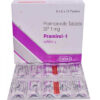

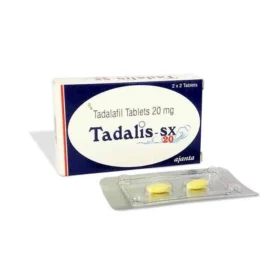
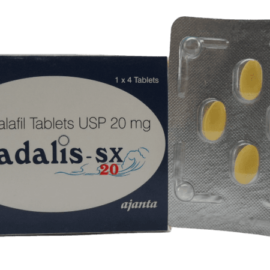











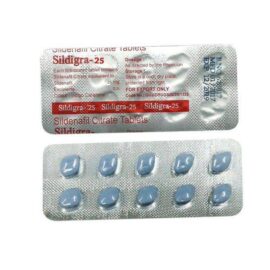
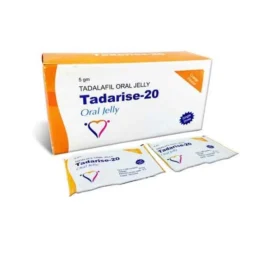
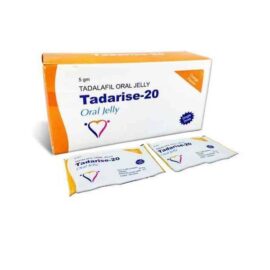







Reviews
There are no reviews yet